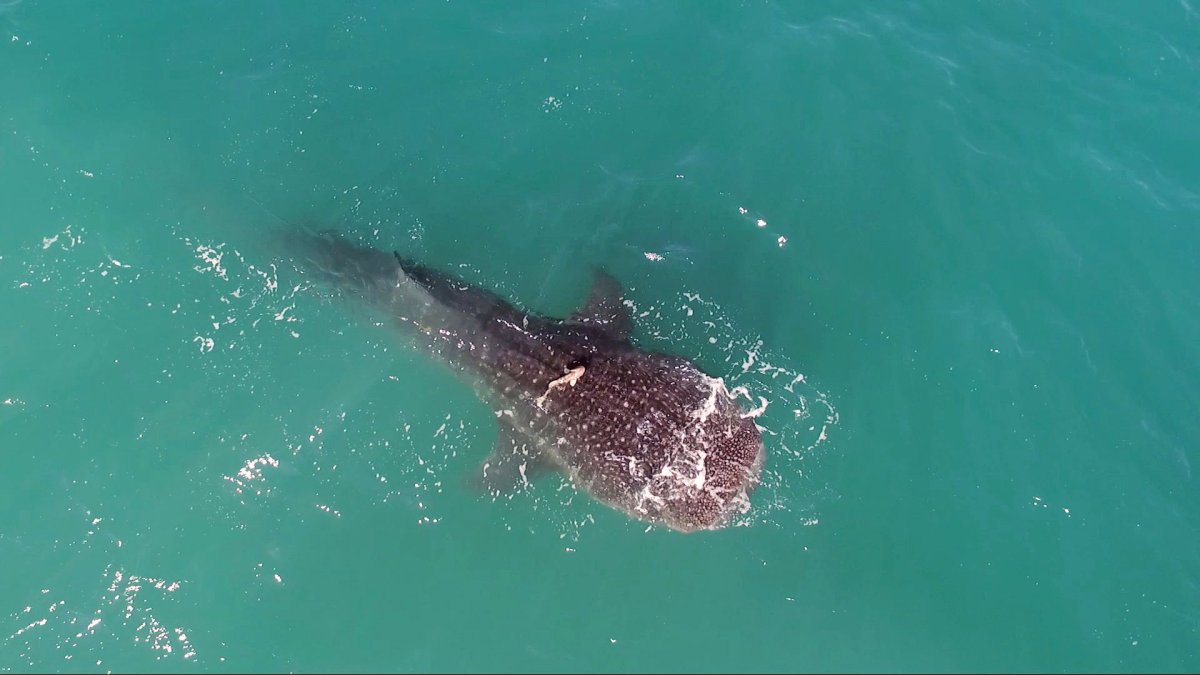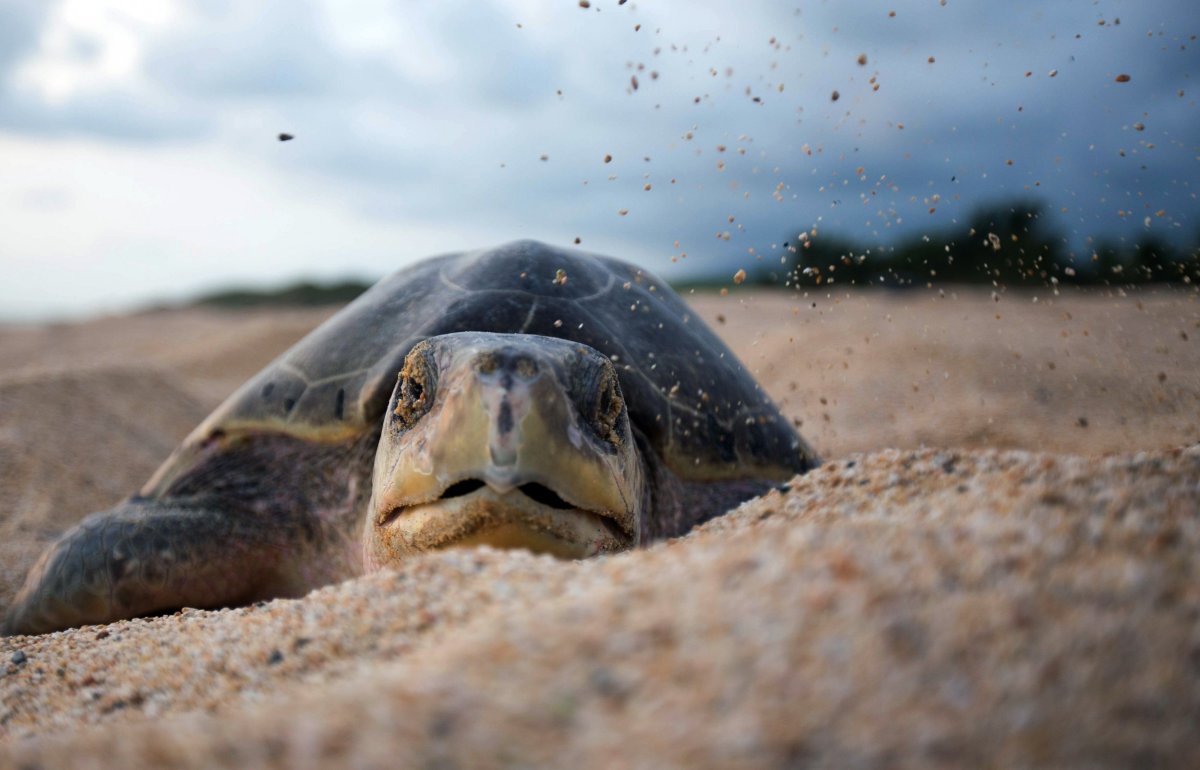Mexico's President Enrique Peña Nieto designated North America's largest ocean reserve, Revillagigedo Archipelago, as a national park. The designation will protect more than 57,000 square miles of ocean teeming with 37 species of sharks and rays, four species of threatened sea turtles, and 366 species of fish, 26 of which can be found only in this part of the world.
Peña Nieto officially created the Revillagigedo Archipelago National Park on Friday, which protects the reserve from all forms of fishing, mining, and construction of new hotels on the islands. "With this decision, Mexico has become a world leader in marine conservation and joins the list of countries that are increasing their protected marine area," Nora Torres of the Coalition for the Defense of the Seas of Mexico told Newsweek in an email.

One species emblematic of the marine area, Torres said, is the Clarion angelfish. The bright yellow and orange species often striped with blue is restricted to a reef habitat of less than 30 square miles, according to the International Union for Conservation of Nature (IUCN). The species is already vulnerable—one step beneath endangered—and has been collected for use in the aquarium trade.
Other endemic species include the multibarred triplefin, island triplefin, and a species of sand stargazer, according to Max Bello, a spokesperson for the Pew Bertarelli Ocean Legacy Project. Coral species such as these help to keep reefs and the oceans biodiverse, which keeps them healthy. Several other species are native to the area as well, including birds, lizards, snakes and plants. A seabird known as Townsend's Shearwater breeds there and nowhere else.
"Revillagigedo has been on the eyes of many organizations and many people and particularly on the scientists' eyes for a while," said Bello, "not only because of the high concentration of endemic species, but because it's a very key area for most of the highly migratory species, such as manta rays, or rays in general, and sharks."
Con el Decreto del Parque Nacional Revillagigedo, el @gobmx reafirma su compromiso con la conservación del patrimonio de @Mexico y el mundo. pic.twitter.com/RNfTruK6XM
— Enrique Peña Nieto (@EPN) November 25, 2017
The national park, which provides the highest protection possible in Mexico, includes four uninhabited volcanic islands—Socorro, Clarión, San Benedicto, and Roca Partida—which are located where the cold waters of the California current meet warmer waters from the north equatorial current. That convergence brings nutrients from the bottom of the ocean to the surface—creating an area where coral species and migratory species such as whales, dolphins, sharks, and sea turtles can thrive. Last year, the IUCN recommended protections for at least 30 percent of the oceans to effectively preserve biodiversity. This designation pushes the world closer to that goal.
"This particular administration, and in particular the minister of the environment—Rafael Pacchiano—has played an incredible role," said Bello. "He understood how important that was and that this was a real legacy for this government and he needed to push for that. So, he was actually the key person in the government to convince everyone, including the president."
Mexico's federal administration has designated six new protected natural areas, so far, according to a statement from Pacchiano. "The decree to convert Revillagigedo to a National Park adds to these actions," he said in a statement. Installing hotels on the islands will be prohibited because the "the intention of the Revillagigedo National Park is to improve the protection of this archipelago, rich with endemic species."

As global temperatures continue to rise, the effects of climate change are seen in the oceans, Matt Rand, director of the Pew Bertarelli Ocean Legacy Project, told LiveScience. A decrease in predatory species, such as sharks, in combination with declining fish populations due to warmer, acidic, and sometimes deoxygenated water are happening around the world, he said. The designation to protect the Revillagigedo Archipelago "will create a gold standard for marine conservation, a sanctuary for ocean life," he said.
The Revillagigedo Archipelago was designated as a World Heritage site by the United Nations last year as part of a recommendation to the Mexican government to increase legal protection. Following the announcement from Peña Nieto, UNESCO said in a statement on Friday: "The no-take extension is a leading example for others around the world of how government agencies, civil society and the scientific community work hand in hand to strengthen the protection of our common heritage of humankind."
Uncommon Knowledge
Newsweek is committed to challenging conventional wisdom and finding connections in the search for common ground.
Newsweek is committed to challenging conventional wisdom and finding connections in the search for common ground.
About the writer
Sydney Pereira is a science writer, focusing on the environment and climate. You can reach her at s.pereira@newsweekgroup.com.
To read how Newsweek uses AI as a newsroom tool, Click here.








